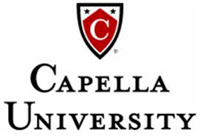What do they do?
Determine eligibility of persons applying to receive assistance from government programs and agency resources, such as welfare, unemployment benefits, social security, and public housing.
Also known as:
Benefits Program Tech (Benefits Program Technician), Business and Employment Specialist, Business Employment Specialist, Case Manager, Case Technician (Case Tech), Client Services Rep (Client Services Representative), Eligibility Examiner, Eligibility Specialist, Eligibility Technician, Eligibility Worker, Employment Adjudicator, Employment Specialist, Family Independence Case Manager, Housing Specialist, Intake Specialist, Job Services Consultant, Patient Services Assistant, Program Eligibility Specialist, Social Case Worker, Social Welfare Examiner (SWEX), Veterans Employment Rep (Veterans Employment Representative), Workforce Advisor, Workforce Development Specialist, Workforce Services Representative (WSR)
-
1%
Change
Ranks #47 in job growth rate360Job Openings
Ranks #18 in net job growth
Looking for colleges that offer a specific major? Use the College Match Tool to find your best-matched schools and discover your estimated Net Price!
- Bachelor's degree (38%)
- Some college, no degree (24%)
- Associate's degree (14%)
- High school diploma equivalent (12%)
- Master's degree (10%)
- Doctorate or Professional Degree (1%)
- Less than high school diploma (1%)
People in this career often have these skills:
- Speaking - Talking to others to convey information effectively.
- Active Listening - Giving full attention to what other people are saying, taking time to understand the points being made, asking questions as appropriate, and not interrupting at inappropriate times.
- Reading Comprehension - Understanding written sentences and paragraphs in work-related documents.
- Writing - Communicating effectively in writing as appropriate for the needs of the audience.
- Social Perceptiveness - Being aware of others' reactions and understanding why they react as they do.
- Service Orientation - Actively looking for ways to help people.
- Critical Thinking - Using logic and reasoning to identify the strengths and weaknesses of alternative solutions, conclusions, or approaches to problems.
People in this career often know a lot about:
- Customer and Personal Service - Knowledge of principles and processes for providing customer and personal services. This includes customer needs assessment, meeting quality standards for services, and evaluation of customer satisfaction.
- English Language - Knowledge of the structure and content of the English language including the meaning and spelling of words, rules of composition, and grammar.
- Administration and Management - Knowledge of business and management principles involved in strategic planning, resource allocation, human resources modeling, leadership technique, production methods, and coordination of people and resources.
- Administrative - Knowledge of administrative and office procedures and systems such as word processing, managing files and records, stenography and transcription, designing forms, and workplace terminology.
- Personnel and Human Resources - Knowledge of principles and procedures for personnel recruitment, selection, training, compensation and benefits, labor relations and negotiation, and personnel information systems.
- Education and Training - Knowledge of principles and methods for curriculum and training design, teaching and instruction for individuals and groups, and the measurement of training effects.
- Computers and Electronics - Knowledge of circuit boards, processors, chips, electronic equipment, and computer hardware and software, including applications and programming.
- Mathematics - Knowledge of arithmetic, algebra, geometry, calculus, statistics, and their applications.
People in this career often have talent in:
- Oral Expression - The ability to communicate information and ideas in speaking so others will understand.
- Oral Comprehension - The ability to listen to and understand information and ideas presented through spoken words and sentences.
- Written Comprehension - The ability to read and understand information and ideas presented in writing.
- Written Expression - The ability to communicate information and ideas in writing so others will understand.
- Speech Clarity - The ability to speak clearly so others can understand you.
- Speech Recognition - The ability to identify and understand the speech of another person.
- Deductive Reasoning - The ability to apply general rules to specific problems to produce answers that make sense.
- Inductive Reasoning - The ability to combine pieces of information to form general rules or conclusions (includes finding a relationship among seemingly unrelated events).
- Problem Sensitivity - The ability to tell when something is wrong or is likely to go wrong. It does not involve solving the problem, only recognizing that there is a problem.
- Information Ordering - The ability to arrange things or actions in a certain order or pattern according to a specific rule or set of rules (e.g., patterns of numbers, letters, words, pictures, mathematical operations).
People in this career often do these activities:
- Calculate financial data.
- Record information about legal matters.
- Compile data or documentation.
- Interview employees, customers, or others to collect information.
- Explain regulations, policies, or procedures.
- Refer customers to appropriate personnel.
- Obtain personal or financial information about customers or applicants.
- Provide information to coworkers.
- Administer personnel recruitment or hiring activities.
- Schedule appointments.
- Assist individuals with paperwork.
- Prepare documentation for contracts, transactions, or regulatory compliance.
- Investigate personal characteristics or activities of individuals.
- Monitor financial information.
This page includes data from:

 Occupation statistics: USDOL U.S. Bureau of Labor Statistics Occupational Employment Statistics
Occupation statistics: USDOL U.S. Bureau of Labor Statistics Occupational Employment Statistics










